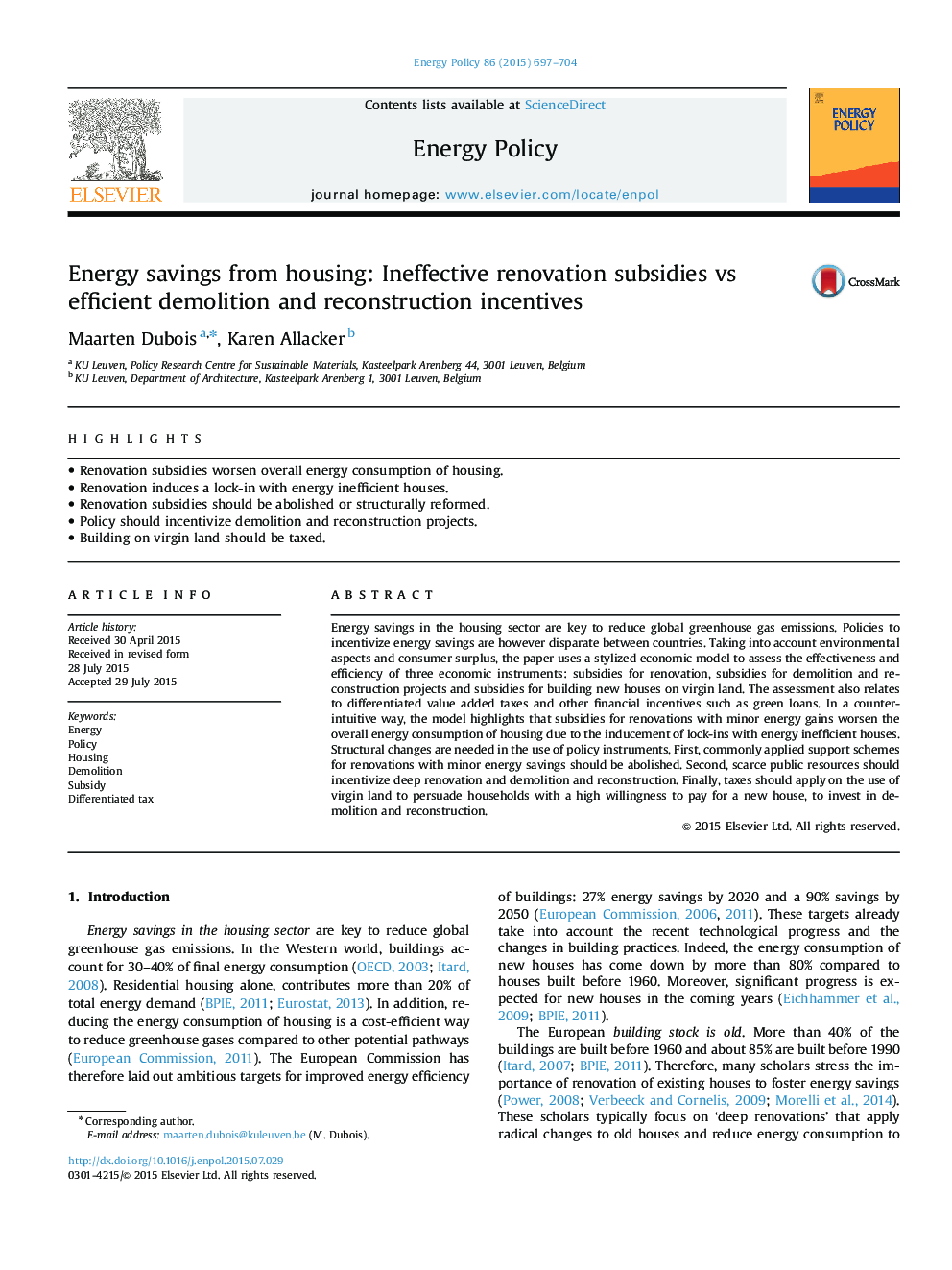| Article ID | Journal | Published Year | Pages | File Type |
|---|---|---|---|---|
| 7400796 | Energy Policy | 2015 | 8 Pages |
Abstract
Energy savings in the housing sector are key to reduce global greenhouse gas emissions. Policies to incentivize energy savings are however disparate between countries. Taking into account environmental aspects and consumer surplus, the paper uses a stylized economic model to assess the effectiveness and efficiency of three economic instruments: subsidies for renovation, subsidies for demolition and reconstruction projects and subsidies for building new houses on virgin land. The assessment also relates to differentiated value added taxes and other financial incentives such as green loans. In a counter-intuitive way, the model highlights that subsidies for renovations with minor energy gains worsen the overall energy consumption of housing due to the inducement of lock-ins with energy inefficient houses. Structural changes are needed in the use of policy instruments. First, commonly applied support schemes for renovations with minor energy savings should be abolished. Second, scarce public resources should incentivize deep renovation and demolition and reconstruction. Finally, taxes should apply on the use of virgin land to persuade households with a high willingness to pay for a new house, to invest in demolition and reconstruction.
Keywords
Related Topics
Physical Sciences and Engineering
Energy
Energy Engineering and Power Technology
Authors
Maarten Dubois, Karen Allacker,
